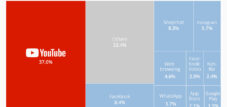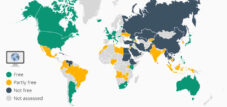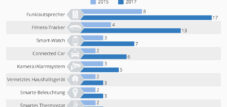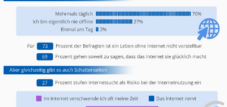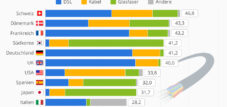The EU has evolved with Internet access - The EU Has Come Along Way with Internet Access
Language selection 📢
Published on: January 28, 2019 / Update from: January 28, 2019 - Author: Konrad Wolfenstein
At the beginning of the 21st century, almost two decades ago, nationwide gaps in Internet access were widespread and widespread in Europe. According to Eurostat , in 2002 only 20 percent of Spaniards had used the Internet in the previous three months. For Germany, around half of respondents had access to the internet within the same period, while around 56 percent of UK respondents accessed the internet.
In 2008, just six years later, a clear majority in Germany, France, Great Britain and Spain had accessed the Internet, with usage rates in the previous quarter hovering around 60 to 70 percent. By 2018, all countries had achieved near-universal usage within the previous three months, with Spain experiencing the highest growth among the selected countries between 2002 and 2018, recording a 66 percent increase in internet usage.
At the beginning of the 21st century, nearly 2 decades ago, country wide gaps in internet access became common and expansive in Europe. According to data from Eurostat, in 2002, only 20 percent of people in Spain had used the internet within the past 3 months. For Germany, about half of surveyed people had accessed the internet within that same time frame, while about 56 percent of respondents from the United Kingdom had accessed the internet.
In 2008, just six years later, a significant majority had accessed the internet in Germany, France, the United Kingdom, and Spain, with usage rates hovering around 60 to 70 percent within the past quarter. By 2018 all countries had achieved near-universal use within the past three months, with Spain showing the highest growth out of selected countries between 2002 and 2018, reporting a 66 percent jump in internet use.







